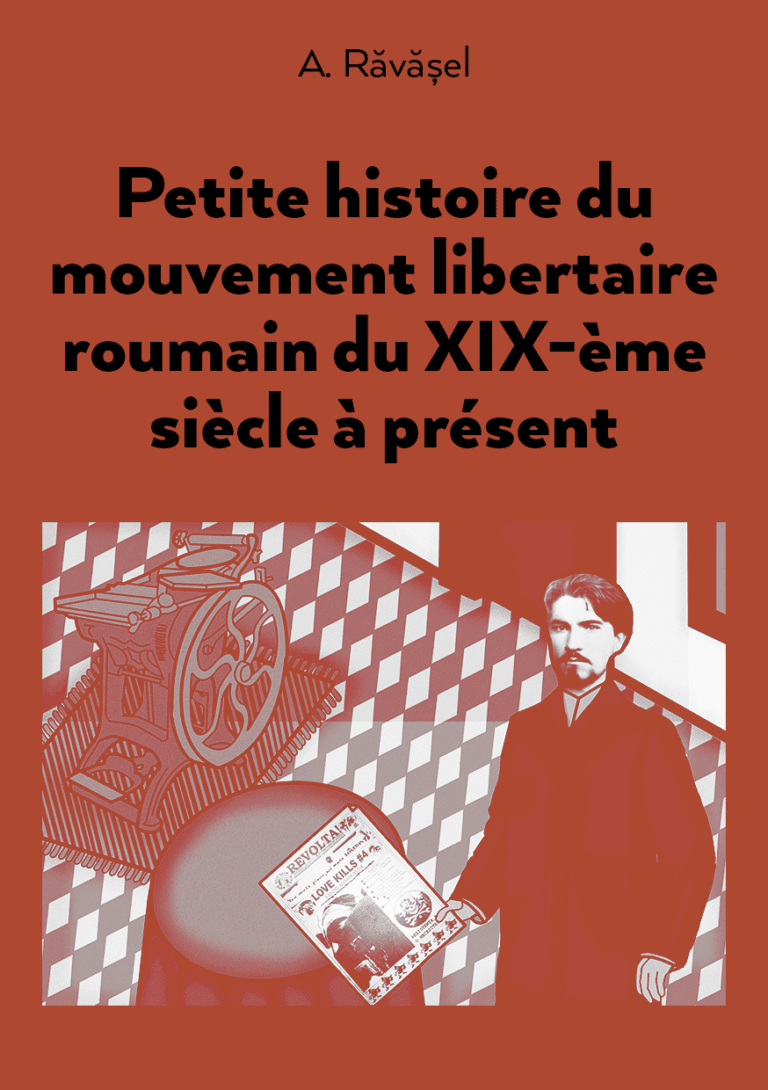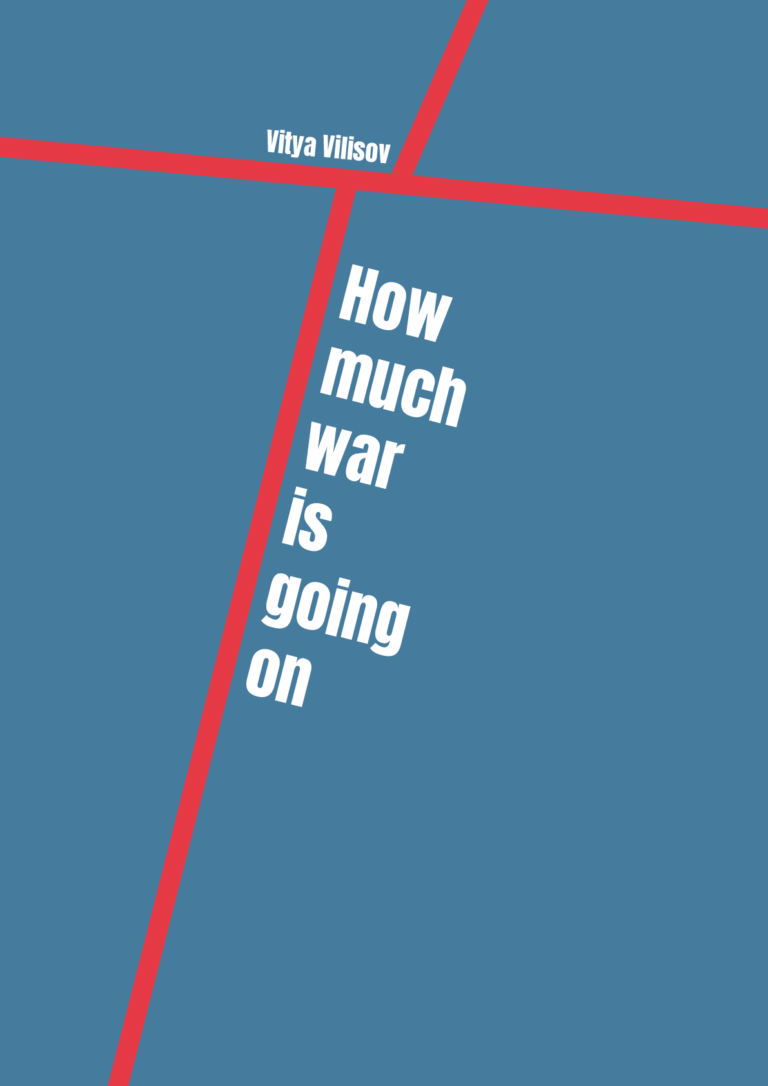
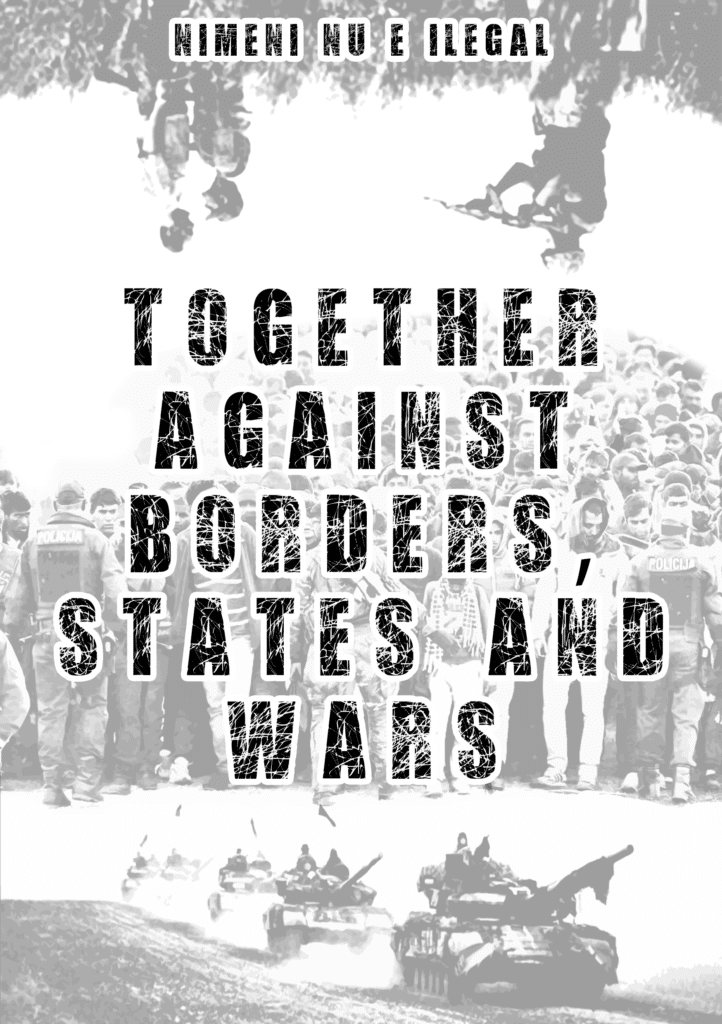
Name
Together against borders, states and wars
Author
Nimeni nu e ilegal
Release date
19 May 2022
Pages no.
20
Format
A5
Color
b/w
Introduction
There is a severe lack of information regarding the current situation of refugees crossing Romania, the policies of continuous militarization implemented by states and institutions involved in the escalation of violence and wars. Additionally, there is little discussion about the rise of fascism, racism, and nationalism, the criminalization of refugees, the establishment of new borders, the conditions in transit centers, illegal deportations, and the depoliticization of the refugee problem through various NGOs. Romania actively participates in all these processes.1 Because most of the information is currently monopolized by the institutions that created this situation, labeling it as a „humanitarian crisis”, this booklet aims to provide an overview of these issues from an anti-authoritarian perspective. Furthermore, it is crucial to resist these neoliberal policies and engage in solidarity actions, not only with refugees transiting Romania but also with all those affected by capitalism’s advance and extreme right-wing ideologies in all their forms.
Before we proceed, it is important to note that this booklet does not offer universal solutions to the harm caused by various forms of fascism, statist communism, colonialism, eco-fascism, eugenics, or other hierarchical and authoritarian policies and systems. The Nimeni nu e ilegal (No One is Illegal) group, which has produced this brochure, seeks to denounce and combat racial profiling, detention and deportation, the repressive apparatus of the state, police violence, and the exploitation of migrants and refugees. Specifically, the group Nimeni nu e ilegal is part of a broader movement for global, ecological, and housing justice that opposes capitalism, homophobia, imperialism, patriarchy, poverty, racism, militarization, the existence of borders, and other forms of domination. We actively advocate for a world where all people have access to food and the right to freedom of movement, free from oppression, misery, and exploitation, and where meaningful social and environmental relationships can thrive.
Part 1. Stop the Militarization and Wars!
It is easy to understand that every nation-state is built upon war. Once formed, nation-states engage in migration control operations, using the same language and the same tactics of extermination that led to their formation. For instance, shortly after the Russo-Turkish War in 1877-78, the Romanian state implemented its first „law on foreigners” in April 1881. This law, which allowed for the expulsion of undesirables, targeted homeless individuals (mostly Roma people) under the pretext of „vagrancy,” as well as the Jewish population and revolutionary exiles fleeing repression by the Tsarist Empire, who were considered „dangerous” by the ruling class.
Modern wars, whether religious or political, have continued the same ideological line of domination, division, and territorial expansion, often involving multiple states in the plundering of natural resources. One of the most recent examples is the US invasion of Iraq. Following this logic, Romania’s entry into the North Atlantic Alliance (NATO) in 2004 implicated the complicity of a new capitalist state in the Middle East conflict, diverting economic resources towards militarization, the establishment of secret CIA prisons, and the constant acquisition of weapons. It is not surprising that the same measures that caused conflicts in other territories eventually lead to armed conflicts in neighboring regions.
Regardless of the forms of state organization, the violent nature of capitalist political games has resulted in crimes against civilian populations, genocide, and population displacements due to war, famine, persecution, and climate or ecological disasters. As a consequence, in the past seven years, the number of migrants and refugees coming from countries like Syria, Afghanistan, Iraq, Iran, Pakistan, Bangladesh, Algeria, or Morocco, either seeking asylum or transiting Romania via the so-called „Balkan routes,” has increased.
Although there is an agreement regarding the relocation of refugees from non-European states, studies conducted show that around 38 people were resettled in Romania from Myanmar through Malaysia in 2010, 40 Iraqis from Turkey, and 60 people from the Middle East and North Africa in 2016 and 2017. Another relocation of 109 Syrian refugees from Turkey and Jordan took place between 2019 and 2020. The same study shows that in 2020, over 46,000 refugees tried to cross Romania, of which 30.6% were from Afghanistan and 28.5% were from Syria. 35,000 of them were stopped at the entrance, 10,000 were caught while crossing the border, and 3,641 applied for asylum at the border.2 This number increased with 856,941 refugees from Ukraine, of whom, by March 2022, 3,500 had applied for asylum in Romania. They were fleeing a new war provoked by Russia’s imperialist tendencies.
An immediate effect of these massive population displacements has inevitably been the restriction of freedom of movement, the construction of new walls and borders, the emergence of new transit centers, increased security of states, and the emergence of new divisions based on race, sexual orientation, religion or nationality. The internal political disputes of the “European stronghold” gave rise to an agreement between the European Union and Turkey in 2016. It happened after more than 3,500 people fled the conflict and persecution in Syria, Afghanistan and Iraq last year. The EU would eventually offer Turkish citizens free passage in Europe and 3 billion euros to the Turkish state to strengthen its borders in that region.3 This treaty led to the establishment of transit camps (called hotspots) according to the nationality of the refugees, on the islands of Lesvos, Chios, Samos, Kos, Leros. The Greek authorities, together with those of the European Union, decided whether or not people could apply for asylum. Out of the tens of thousands of people arriving here, some were either deported or kept for months in inhumane conditions. One such example is the Moria refugee transit center (on the island of Lesvos, Greece), which on 9 September 2020 burned to the ground, leaving 13,000 people homeless. The Greek state subsequently benefited from new sums of money to build other transit centers with increased security measures.4 After the same treaty in 2016, Hungary began the construction of barbed wire fences on the border with Serbia and Croatia, then began campaigns to criminalize homeless people, but also illegally pushing refugees across the border and other types of violence. These new borders have led to the emergence of “jungle” camps in Serbia, where refugees are always exposed to attacks from Serbian right-wing extremists.
One compelling case is that of a member of the far-right group Levijatan who drove a car into an area inhabited by refugees.5 More recently, based on the conflicts between the EU and Belarus, a new border will be built by the Polish state, with a length of 186 km and a height of up to 5.5 meters, at the price of 353 million euros. It will be equipped with motion detectors and thermal cameras. Meanwhile, the number of refugees dying at the Polish borders is steadily increasing, and Polish far-right groups are allowed to intervene in pushing refugees back into Belarus.6
However, there have been numerous cases of racial discrimination against refugees coming all the way from Ukraine (mostly students of color trying to return to their countries) and crossing EU borders. Although in Romania these cases do not seem to have been as numerous as in Poland, there have been reported (and still are) enough examples of discrimination against Roma refugees from Ukraine.7
Regarding the Romanian state, there have been numerous complaints against the Romanian Border Police for its involvement, together with the European Border and Coast Guard Agency (FRONTEX), in illegal actions to prevent refugees from reaching the Greek shore of the Aegean Sea from Turkey. More specifically, in the middle of the year 2020, a ship identified with MAI 1103, belonging to the Romanian Border Police, was captured in a video recording producing waves near a rubber boat of migrants in order to block their access to the shore and with the possible intention of sinking the medium boat.8
Part 2. Against the police and all authoritarian institutions
Once involved in the war, the capitalist states, which are complicit in generating and maintaining conflicts, set up numerous institutions that will act under the pretext of the “humanitarian crisis”, and will build new borders and exploit the displacement of the population.9 Thus, in Romania, as in other states, the institutions most often used to maintain and „manage” this state of oppression are the Romanian Police, the Border Police, the General Inspectorate for Immigration (IGI), together with local NGOs and international institutions such as UNHCR and IOM, which in turn cooperate with the former. For example, there are countless cases where the Romanian Border Police was involved in illegal pushbacks, denying refugees the right to apply for asylum or to reunite with their families. Most of the time, such actions perpetuate the same violent and thieving methods that led from the very beginning to the emergence of wars. For example, over the past two years, the Romanian Border Police has been accused and recorded on video using force against refugees and destroying their phones.10 Moreover, there have been cases where members of the Jimbolian Border Police have robbed refugees of the last amount of money they had on them, and they redistributed among those involved, and other people. Those who manage to escape and reach a city receive the same treatment, this time being applied by the gendarmerie, as it happened with the refugees who occupied the abandoned buildings in Timișoara.
If law enforcement does not intervene, as another study shows, the civil society in Timișoara, together with the media, also forms a “police” coalition that acts in the name of community security, calling for violence against refugees, eviction from public spaces and their criminalization.11
Since the situation is managed by hierarchical and authoritarian institutions by definition, they use the so-called “crisis” to set up the transit centres mentioned before. As a rule, surrounded by barbed wire and guarded by the police, they operate on the principle of prisons, only that they are renamed as Accommodation Centers for Aliens taken into Public Custody (Arad and Otopeni) or the Regional Accommodation and Procedures Center for Asylum Seekers in Timișoara, Maramureș, Rădăuți, Galați, Bucharest, Giurgiu etc.
People arriving here are selected based on eugenic grounds (their fingerprints are taken and are questioned); more specifically, those who meet a number of conditions can apply for asylum in the country. Those who do not want this, take the risk of continuing on their own to other destinations. In the same place, IGI together with local religious NGOs are demanding exorbitant amounts of money from the European Union to start various ethnic and cultural assimilation projects. A good example of this is the newsletter edited by IGI, where each issue displays numerous white and nationalist ethnic assimilation policies, through activities that celebrate historical characters and events in Romania, minors drawing national symbols, but also the extracurricular activities of police employees, such as their own fishing championships. The frequent application of bodily corrections and the racism of these temporary spaces have been reported on numerous occasions. The victims of this concentration system reported that: “The conditions here are very bad! Very, very bad. People from security, everyone who works here, they’re so racist! They talk to us like we’re not refugees here. We’re animals, we’re… I don’t know… They are so racist!”12 Being managed by patriarchal institutions and often too unhealthy to be inhabited, these prison spaces continue to generate violence and homophobia: “When I got here (in the center), the policemen asked me, with a smile on his face, if I liked boys. I told him yes, that’s right, I’m gay. I don’t know how to say it, the way he asked me and looked at me was one that made me uncomfortable.”13
Part 3. NGOs and assimilation policies
There are numerous studies that have shown that the new political direction of the Balkan involves the criminalization and institutionalization of those independent individuals and non-hierarchical groups (also known as grassroots) that provide support and solidarity with refugees on the streets. For example, starting from November 2016 the Serbian government launched a campaign against anyone offering support to refugees who couldn’t prove their affiliation with an NGO. The following year, abandoned buildings in Belgrade were evacuated, and around 2,000 refugees who were using them as shelters were relocated to transit centers. Since then, people and informal groups wanting to provide support have been required to adopt structures similar to liberal NGOs and obtain authorizations to continue their support. This institutionalization of support and solidarity has led to NGOs becoming dependent on European financial projects primarily offered to governments. It has created new competition while also imposing depoliticization of the war situation and regulations and controls on who can provide so-called humanitarian support.14 In Greece, where a coalition of squats (such as City Plaza, Notara 26, Oniro, Spirou Trikoupi, Arahovis, 5th School, Jasmin School, and Acarchon 22), aimed to support refugees, the new government leadership sought to evacuate and „cleanse” these spaces of any trace of political activism.
In Romania, the situation is slightly different. AIDrom is among the most significant NGOs dealing with the situation of refugees transiting through Romania. This organization is essentially the Ecumenical Association of Churches in Romania, which works by attracting European funds to promote charity and its own religious philanthropy. However, the integration policies implemented in collaboration with immigration institutions serve the interests of the nation-state, seeking to assimilate religious, cultural, and depoliticize armed conflicts. Thus, among the many whitewashing programs carried out in the name of neo-liberal “multiculturalism”, children and adults are subjected to practices of ethnic, religious and cultural assimilation. Other AIDrom programs, such as Timișoara Refugee Art Festival organized in collaboration with UNHCR, have exposed people participating to attacks from right-wing extremists. For example, footage of legionnaires’ hymns and simulated bombing sounds were sneaked into the conference room.15
Recently, the organization LOGS has separated from AIDrom. In an effort to gain better international visibility and attract volunteers and funds, the association presents itself as “a grassroots organization in western Romania”, borrowing the name from self-organized community political movements fighting for social justice. In practice, the association continues the same religious philanthropic and white assimilation policies started by AIDrom, thus further monopolizing any manifestation of solidarity with people in transit. For instance, LOGS, together with media trusts, recently exposed 23 individuals from Ukraine on social media as war deserters, potentially subjecting them to deportation under martial law. On the brink of becoming a family business, the association implements projects funded by the European Union to provide meal vouchers, informative brochures on the asylum process, hygiene products, and shower facilities, among other things. Similar to the Jesuit Refugee Service of Romania (JRS), LOGS is one of the many church organizations aiming to „save” those who reach the shores of Christian Europe.
Part 4. Stop the wars!
While writing this booklet, the war in Ukraine also broke out, a conflict that did not come as a great surprise to us. Like all wars, it is a result of Russian imperialism and NATO expansionism, driven by the desire to divide power zones and exploit natural resources. This inevitably leads to the drawing of new borders, further militarization of society, and the division of the population based on ethnic, racial, and religious criteria. As is typical in armed conflicts, millions of human and non-human beings have been forced to flee the bullets and bombs. Like in every war, we are witnessing new acts of violence, suffering, sexual abuse, and the rise of nationalism. The sad reality is that the winners of this war will be the major weapons producers and capitalists, and, not least, right-wing extremists who, under the pretext of defending the nation-state, are eager to be part of the new post-war political arrangements.
The logic of war, in its essence, is one of division, domination, and power. The peace that will be established after these atrocities will only serve as a groundwork for future global conflicts. We are being forced to take sides, aligning ourselves with one nationalism or another. Therefore, we want to be unequivocal in stating that we do not support any state that contributes to the militarization of society and perpetuation of wars. Our position is one of solidarity with all those who fight and resist in the territories of Ukraine, Russia, and Belarus.
Part 5. Solidarity is our weapon!
Transnational solidarity, not volunteerism and local charity, is what we need!
As we have witnessed in the aftermath of the war in Ukraine, solidarity is the most powerful weapon to resist.
Solidarity must expose the root causes that have led to this ongoing state of war. It is not merely an act of affirming that every individual has the right to settle and move freely wherever they choose, but it is also an act of resistance against the policies of division, exclusion, and control enforced by nation-states. We must continually exert pressure on the existing political and economic systems to put an end to human rights violations, all forms of detention, and the incessant bombing of civilian communities. As we have demonstrated earlier, we do not need the „humanitarianism” offered by NGOs, which often serves as a tool of state-sanctioned oppression, alongside religious and political institutions. Now, more than ever, it is crucial to halt the advancement of fascism in all its forms. It is time to fight for a world where everyone and everything has the right to housing, food, and travel, where we are free from oppression, poverty, and exploitation.
The only war we support is the war against imperialism and nationalism!
Together against borders, states and wars!
Solidarity will win!
1. Some relevant information can only be found online, https://pagini-libere.ro/en/interview-with-a-food-not-bombs-activist-from-timisoara-about-refugees-and-solidarity, and in English, see Raluca Bejan, “The Integration of Refugees in Romania: A Non-Preferred Choice,” in Compas (2021): 1-35.
2. Raluca Bejan, Ibid., pp. 5-6.
3. https://eu.rescue.org/article/what-eu-turkey-deal
4. https://www.theguardian.com/world/2022/apr/21/disaster-waiting-to-happen-moria-refugee-camp-fire-greece-lesbos
5. https://www.masina.rs/eng/right-wingers-organize-a-rally-in-front-of-a-migrant-reception-centre-in-support-of-an-arrested-member-of-far-right-organization-levijatan/
6. https://www.spiegel.de/international/world/a-chronicle-of-refugee-deaths-along-the-border-between-poland-and-belarus-a-de0d7ace-3322-4ac9-9826-9f2774a540ee
Another source: https://kontrapolis.info/5968/?fbclid=IwAR25NXrn7MeNtun-_GPNCLGdOeXqgTt2hsZuW5RRM2a2VLnQbfVX2qaJLoE
Another source: https://www.hrw.org/report/2021/11/24/die-here-or-go-poland/belarus-and-polands-shared-responsibility-border-abuses
7. https://www.aljazeera.com/gallery/2022/2/28/photos-romania-ukraine-refugees-russian-invasion
Another source: http://www.romea.cz/en/news/world/errc-romani-ukrainians-fleeing-into-moldova-from-russian-aggression-are-discriminated-against-for-lack-of-personal#
Another source: http://www.romea.cz/en/news/world/roma-and-other-people-of-color-fleeing-war-in-ukraine-face-discrimination-and-racism-jaroslav-miko-tells-romea-tv-that#.YiClc85Tfjs.twitter
Another source: https://www.libertatea.ro/stiri/reportaj-ce-a-patit-un-grup-de-romi-saraci-din-ucraina-cand-au-fost-confundati-in-gara-de-nord-cu-romi-de-la-noi-4022475
8. Source: https://www.spiegel.de/international/europe/eu-border-agency-frontex-complicit-in-greek-refugee-pushback-campaign-a-4b6cba29-35a3-4d8c-a49f-a12daad450d7
Another source: https://balkaninsight.com/2020/02/06/frontexs-history-of-handling-abuse-evidence-dogs-balkan-expansion/
9. For a list of borders and walls see: https://nobordersteam.noblogs.org/post/2022/03/12/mury-czyli-jak-polska-dolaczyla-do-stosowania-kryminalnych-metod-ochrony-granic/
10. https://www.euronews.com/2020/09/22/whips-sticks-and-batons-romanian-border-police-accused-of-violence-against-migrants
and: https://impakter.com/the-presence-of-illegal-pushbacks-at-eu-borders-is-exposed/
11. Also check: https://casisocialeacum.ro/archives/6852/panica-morala-si-refugiatii-din-timisoara
12. https://romania.europalibera.org/a/31231490.html
13. https://romania.europalibera.org/a/31231490.html
14. Céline Cantat, “Refugee Solidarity along the Balkan Route: Apolitical approach of NGOs” Journal of Refugee Studies Vol. 34, No. 2 (2021): 1360-1362.
15. Source: https://www.vice.com/ro/article/ywew8b/traf-festival-timisoara-arta-refugiati?fbclid=IwAR3G4DllsW1k9w4eA8NNQ5sdzRM6xMN9Hg5lUAhbCRhVY9B5udMBVlKgVM4

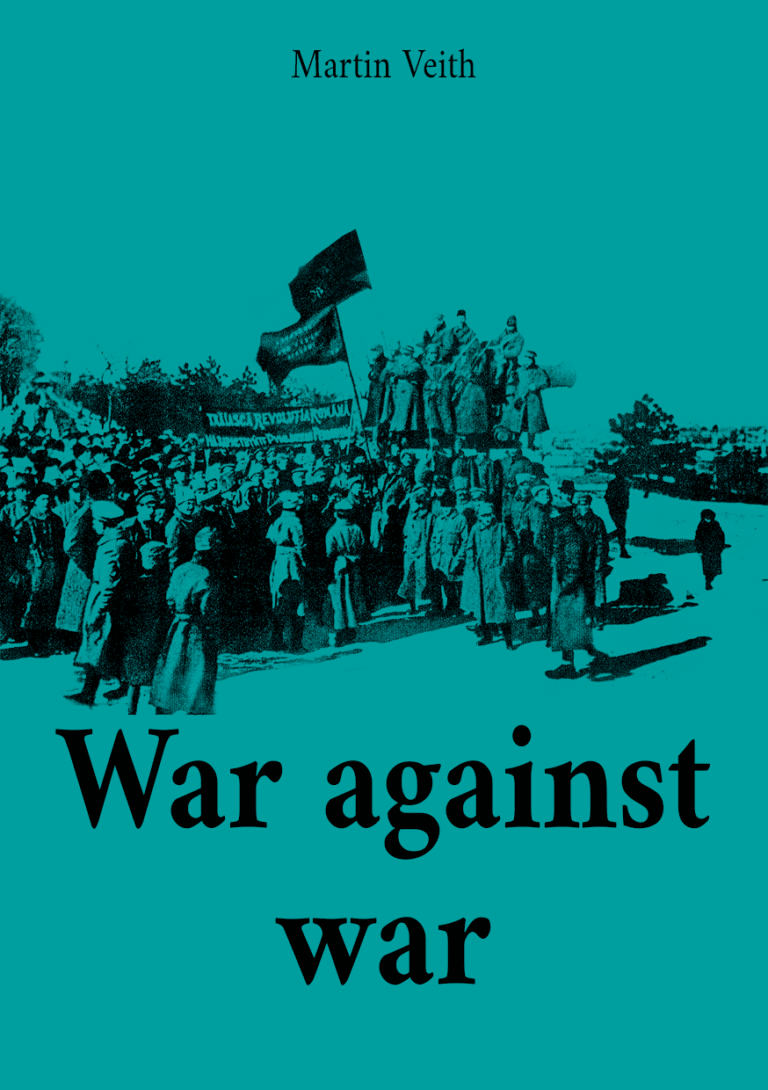
War against war (Martin Veith)
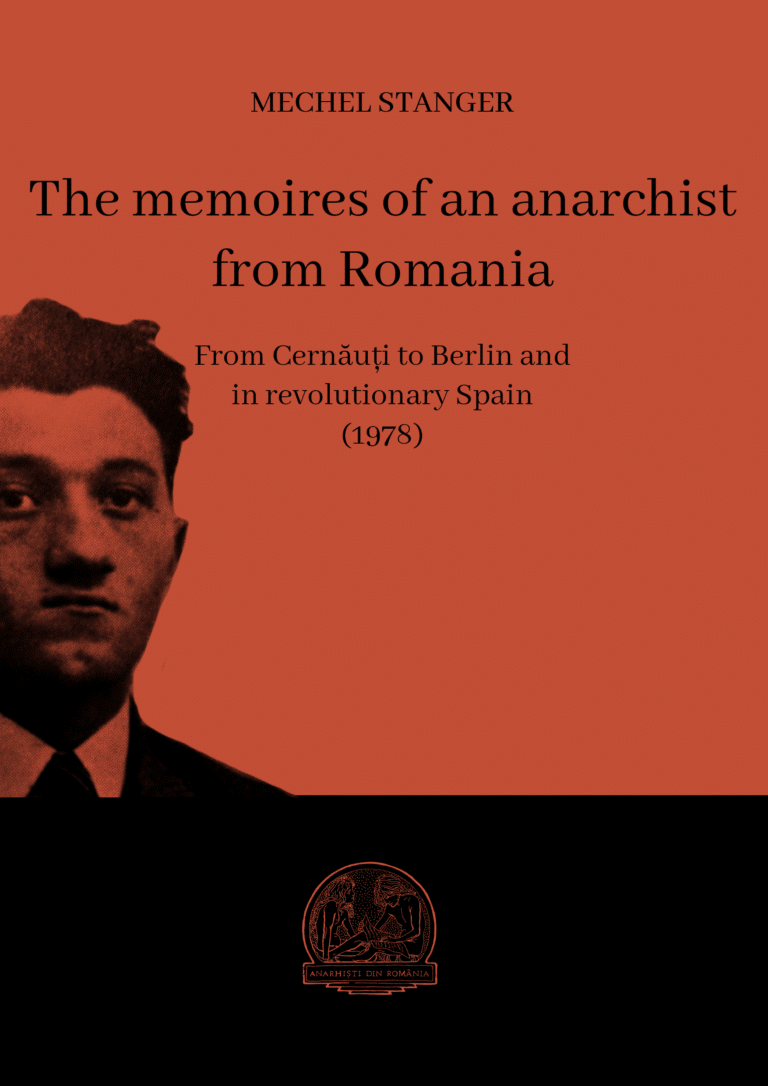
The memoires of an anarchist from Romania (Mechel Stanger)
